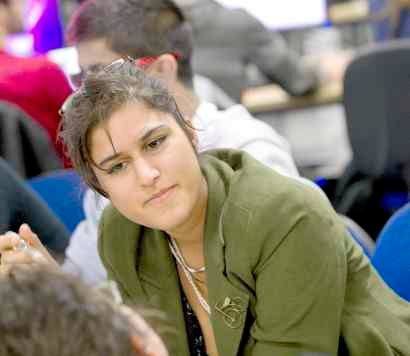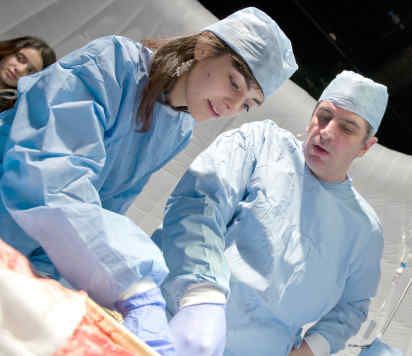2024 events
Dr Jessica Butler, Centre for Higher Education Research and Scholarship
Session title: There’s something to be said for being a bit unusual": Understanding normative institutional culture through self-conscious appropriations of outsiderhood by teaching staff in a UK STEMMB university
Dr Sue Sing and Dr Tiffany Chiu, Centre for Higher Education Research and Scholarship
Session title: It’s not how smart you are. It’s not how hard you work. It’s about the strategy you use: The Learning Well Project
Dr Tatiana Codreanu
Session title: Leveraging Microsoft Copilot and Fade In to build skills in prompt generation, lexicon acquisition and imagery creation
Iria Gonzalez-Becerra, Centre for Languages, Culture and Communication - Central Faculty
Session title: The three Rs of Assessment for Engagement: Changing attitudes, changing outcomes
2023 events
Dr Silke Kerruth, Faculty of Medicine Centre
Session title: Teaching an old dog new tricks: Identity transformation of STEMM professionals at Imperial College through educational research
Irene Kalkanis, Interdisciplinary EdTech Lab
Session title: What are you trying to teach? Exploring methods to systematically capture pedagogical intentions to inform predictive analytics and personalised feedback models
Dr Luotong Hui, Department of Life Sciences; Dr Magda Charalambous, Department of Life Sciences; Dr Kate Ippolito, Centre for Higher Education Research and Scholarship
Session title: Using a self-reflective ePortfolio and feedback dialogue to understand and address problematic feedback expectations
Vijesh Bhute, Department of Chemical Engineering
Session title: Screen-reader accessible websites for effective and inclusive delivery of STEM education
Dr Richard Bale, Dr Monika Pazio Rossiter (with Roisin Gwyon, PhD student) Centre for Higher Education Research and Scholarship
Session title: Intercultural and signature feedback literacies
Ms Moira Sarsfield, Faculty of Natural Sciences EdTech Lab
Session title: Exploring multimode assessment feedback using a design-based research (DBR) approach
2022 events
Heather Hanna, Department of Infectious Disease, Faculty of Medicine
Session title: Do I say it best when I say nothing at all? The lived experience of teaching and learning of introvert students undertaking postgraduate courses in the Faculty of Medicine at Imperial College
Dr Tiffany Chiu and Dr Orla Murray, Centre for Higher Education Research and Scholarship
SIDUS (Supporting the Identity Development of Underrepresented Students) project
Dr Kirsty Flower, Faculty of Medicine Centre
Session title: How does LGBTQIA+ identity impact student experience in the active learning classroom?
Maham Stanyon, Imperial College London
Session title: How Q-riosity shattered the shared illusion of the Japanese generalist and specialist: A Q-method exploration of doctor perceptions of specialty divisions in Japanese medicine
Dr Charlotte Sutherell, Department of Chemistry
Session title: Are we literate? Exploring how views on feedback amongst Chemistry staff influence their undergraduate course design
Dr Peter Johnson, Department of Mechanical Engineering
Session tittle: A model for student emotions in tutorials, accounting for online or in-person contexts and a diversity of student dispositions and experiences

 Dr Luke McCrone is a Research Associate at the Centre for Higher Education Research and Scholarship. As an Imperial graduate, Luke hopes to support more educational research and inquiry across the institution, including via the growth of CHERSNet.
Dr Luke McCrone is a Research Associate at the Centre for Higher Education Research and Scholarship. As an Imperial graduate, Luke hopes to support more educational research and inquiry across the institution, including via the growth of CHERSNet..jpg) Sheri Djafer is the Communication and Research Co-ordinator at the Centre for Higher Education Research and Scholarship. As part of her role, she supports with the administration of CHERSNet and with planning the events for the network.
Sheri Djafer is the Communication and Research Co-ordinator at the Centre for Higher Education Research and Scholarship. As part of her role, she supports with the administration of CHERSNet and with planning the events for the network.
